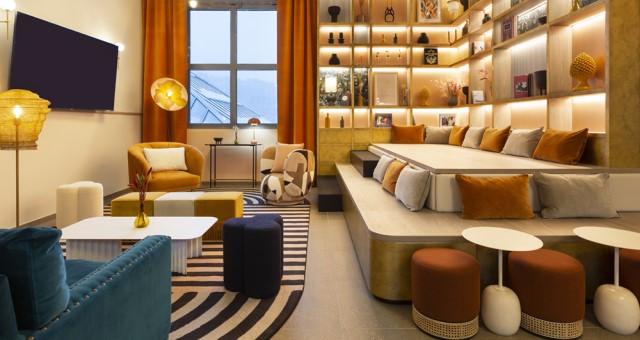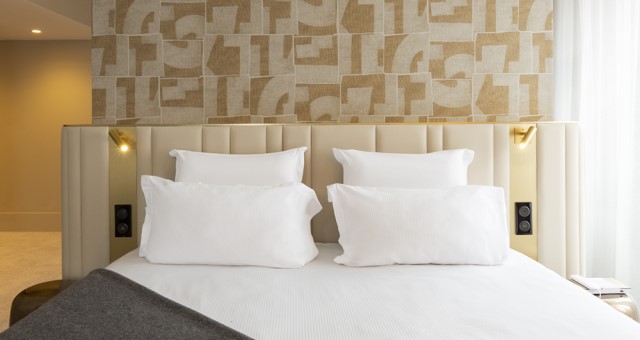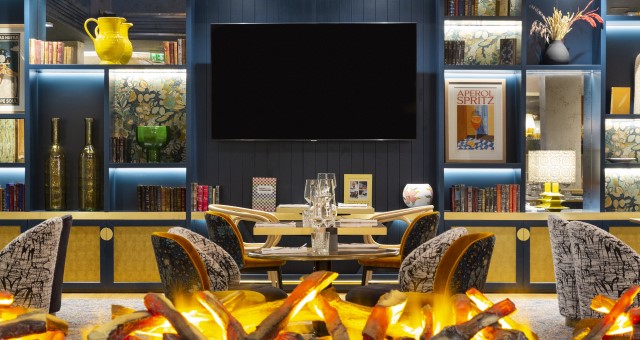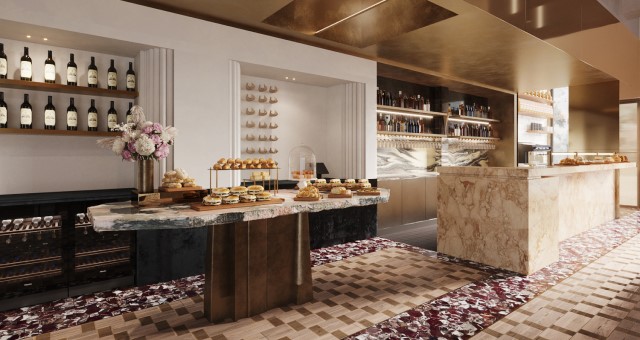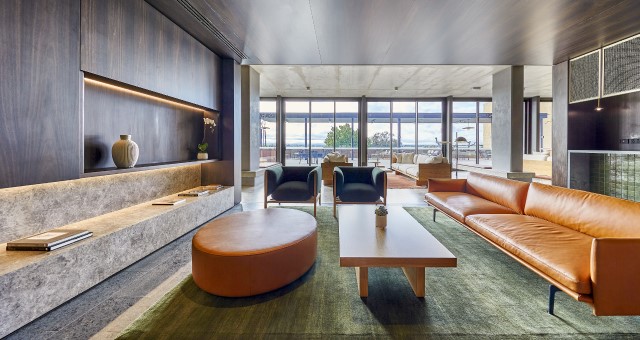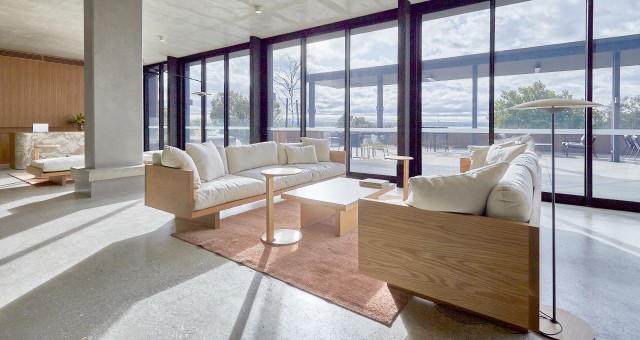Accor is doubling down on unique hotel experiences in the midscale segment with the launch of a new global brand, Handwritten Collection. Accor’s Global Chief Development Officer, Premium, Midscale, Economy, Camil Yazbeck, spoke exclusively to HM about the thinking behind the brand and the strong global development opportunity it presents.
Tell me about the thinking behind the Handwritten Collection and its positioning within the Accor Group.
Handwritten Collection will join the other existing Collection brands – Emblem in luxury, MGallery in premium – and it will be positioned in the midscale segment, above Mercure, forming the Accor Collections vertical.
When you visit a Handwritten Collection hotel, the personality and the personal touches are what makes it different from other brands. These are subtly staged points throughout each of the hotels that reflect the passion of the owner which fosters a meaningful connection between the hotel and the guest in order to elevate that experience and make it more memorable and richer. These are hotels within their own neighborhoods that are focused on the local community. And this is the future, this is where we are going. The Handwritten Collection will join our newly created division, the Premium, Midscale and Economy division, which boasts a very big, impressive portfolio of hotels, extended stay and private residences. This division has more than 20 brands including Pullman, Swissotel, Movenpick, Novotel, Mercure, Adagio, the ibis family and of course, the regional brands in specific countries like Mantra, etc. We have around 85% of the group portfolio in this division and it’s really loved by the partners, it has very strong global awareness, innovative designs, and reliable business models.
The minimum requirements are matching midscale standards, but it has to be qualitative hotels. It has to be very focused, beautiful design – we want the personality of the local neighbourhood and the partner to be reflected in the property. This is the difference between a standard, hard-branded hotel and a Collection brand. It is limited investment for the owner, it has the flexibility of a franchise contract, and it gives owners the opportunity to stay unique, have immediate return on investment and maximise revenue through Accor’s sales, distribution and loyalty systems.
What makes this a really unique offering in the midscale segment?
On a macro level, hotels remain a very attractive class for investors for several reasons. The first reason is they clearly continue to attract customer demand and they continue to grow. Millennials want to travel more often and spend much more on shorter breaks. Also, these consumers are more attracted to hotels which are designed locally for those who live in the neighbourhood and attract the local community. They are looking for a co-working environment, a great bar to meet, a hotel which is a trendy destination. That’s exactly where we’re going. It’s really important to cater for the demands of this group – this is where we must shift our way of thinking.
From an investment point of view, hotels still offer good returns versus other real estate asset class … office, retail, logistics. With the above in mind, and from a branding perspective, the concept has been in the making for one-and-a-half to two years. We add a brand because we have done the homework first on the consumer. Second, is what the partners want and where their money is going to go – where it makes sense. And that includes the independent hoteliers, but it also includes private equity.
We noticed there was a gap in the core portfolio for a Collection brand within the midscale plus sector. During the post-COVID period, with rising costs, inflation, competition etc., these independent hoteliers realised that they needed the strength of a powerful system distribution loyalty platform to increase revenue but also keep their distinctive and offer a great qualitative product, service and experience, as this is highly requested by guests.
Can you share an insight into the growth strategy for this brand?
We have a big pipeline – we’ve already signed 10 hotels, which is brilliant. Hotels will be in capital gateway cities, but also in smaller cities where it’s a popular leisure destination.
We have a hotel in Shanghai, that will be the first property to launch (January 19, 2023). It’s next to a National Park and has over 124,000 square meters of landscaped gardens – it’s like an urban resort experience. We are targeting countries and regions with many independent hoteliers – in Europe, Australia, US, Brazil, etc. This year, properties will open in Australia, China and France, and next year Vietnam, Spain, Poland, Belgium and more. We are expecting to reach around 250 hotels across the globe by 2030.
What types of properties are suited to this brand?
The brand is designed to be flexible, light and easy to attain. Currently, 80% of the hotels are conversions, which is brilliant, [it means that there is a] flexible transition for those who have invested in creating a certain style for the hotel.
It is also appealing for new build – from ground zero to an office or a mixed-use building. In Australia and the UK, there is a big, interesting trend in mixed-use and hybrid buildings, where you can put one or two brands to cater for, say, economy and midscale or midscale and upscale, premium etc. And you can put in extended stay to get a base occupancy which is very important because it diversifies the risk for the investor.
Is there flexibility on the inclusion of certain elements such as F&B, wellness experiences etc. And when every property is different, how do you ensure a consistent guest experience across the various hotels in the collection?
It is flexible in many occasions – the minimum should be midscale, but we have seen more going for upper midscale, even touching on premium. You have to have the essentials. The big differentiating element is the meaningful human connections. These are mandatory in the brand integration because you can have the best hotel in the world but if you don’t have friendly service, approachable, passionate people, it doesn’t work.
All Accor’s brands have very clear quality standards, follow up, customer feedback and targets that need to be achieved from a customer service [standpoint]. And as franchisors, we follow up with our regional teams, and provide training if needed, and ensure that they understand everything that needs to happen.
What does Accor’s broader development outlook look like for 2023 and beyond?
Over the last several years, the Accor network has continued to expand. We are signing around one hotel per day [according to latest figures] – in 2022, we had approximately 400 hotel signings – and we’re opening nearly one hotel per day. We are growing exponentially, but we’re growing selectively at the same time.
Globally, we’re 50-55% in conversions now. The group is dynamic. It’s a sustainable hospitality leader with some of the most prestigious brands and hotel portfolios around the world. And it provides us with a steady flow of market opportunities. I expect the trend to continue in the foreseeable future
In 2023, Handwritten Collection, in particular, will be at the heart of growth. At Accor, 85% of rooms are premium midscale and economy and it’s growing more and more – from the group’s perspective, these are the engine of growth.

